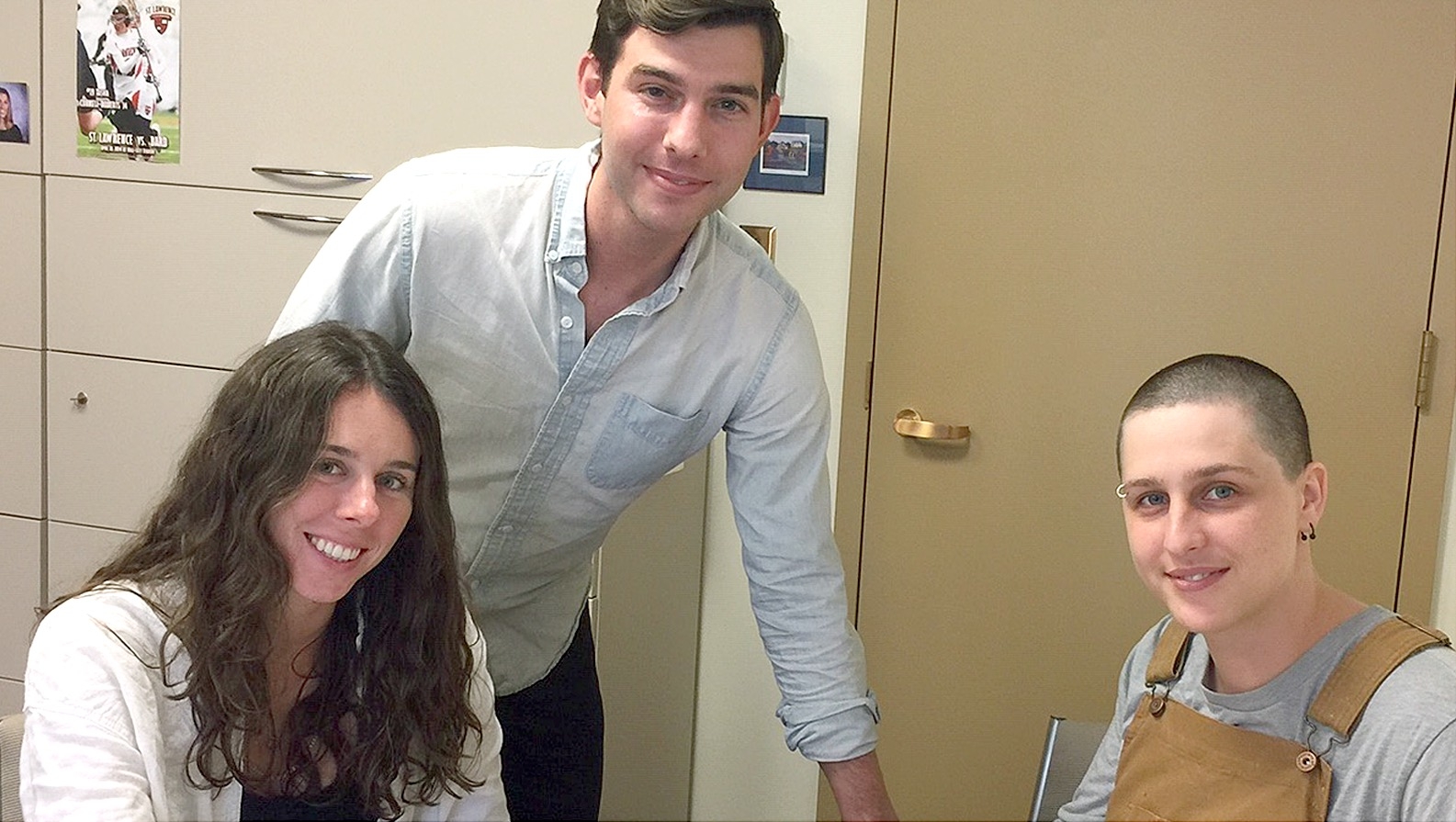This website uses cookies
We use cookies to ensure that we give you the best experience on our website. If you continue to use this site we will assume that you are happy with it.

In 2019, the New York State Human Rights Law was amended to add “gender identity or expression” as a protected class in the areas covered, which includes employment. In its first gender identity discrimination case, Cornell Law’s Labor Law Clinic recently prevailed before the NYS Division of Human Rights and negotiated a settlement on behalf of a transgender client who suffered discrimination and retaliation in the workplace. Labor Law Clinic student Matt Nelson ’23 started the case before the fall 2021 semester began and was joined later in the semester by students Tyler Rhoads ’23 and Renee Olivett ’23, who represented the client through the administrative process to the settlement stage.
The Tompkins County Workers’ Center had referred the case to the Clinic after the client had described discrimination and harassment in the workplace and feared for their safety in the office because of a coworker’s threatening behavior. The client was informed that the coworker had said that “gay people are animals” and referred to them as a “scissoring lesbian squirrel.” After reporting the conduct of the coworker, our client for the first time was accused of performance issues. The employer did little to protect the employee and remedy the harassment.
Clinic students Nelson, Rhoades, and Olivett were front and center in the representation of the client and they put the case together. They spent considerable time understanding the facts and becoming familiar with the legal issues related to the new statutory amendment. And they interviewed witnesses and organized the relevant documentation to support the claim before the Division of Human Rights. Their position statement argued persuasively that their client had been subjected to discrimination and retaliation. They also represented the client at the investigatory interview, which was attended by the witnesses for the employer and their counsel. Additionally, students drafted a very helpful summation on their client’s behalf. The Division of Human Rights found that probable cause existed to believe the organization had engaged in unlawful employment discrimination related to gender identity, expression, sexual orientation, and retaliation.
“Trans and gender non-conforming people experience discrimination on a staggering level, with more than three-fourths of the transgender community experiencing some form of workplace discrimination,” says Nelson. “Assisting a member of my community who has experienced workplace discrimination was emotionally exhausting at times but being a positive part of the process rectifying what they experienced was exhilarating.” He went on to note that “there is less precedent and less knowledge about what discrimination against trans and gender non-conforming persons looks like so there are significant barriers to proving that discrimination.”
Reflecting on the representation, the client said that “both Matt and Tyler were extremely affirming of my gender identity and demonstrated that they trusted my story and would support me even if my language fumbled.” Adding that “I could not be more impressed with the work that the clinic has done for me. I did not expect the DHR to find probable cause with this case, as gender identity is relatively newly protected under labor law. After that wonderful result occurred, I did not expect to settle with such an outstanding outcome.”
Clinic director Angela Cornell notes that the case provided the students with an opportunity to represent a low-income person in the local community who experienced employment discrimination, workplace harassment, and retaliation and was unable to find legal assistance elsewhere.
“I have never stopped being grateful and impressed with the work that the clinic and its students have done on my case. . . I was blown away by the outcome of the case and could not thank the Clinic enough for all of the legal and emotional support. I have so much hope for the future of law after having experienced legal support from these Cornell Law students,” the client added.